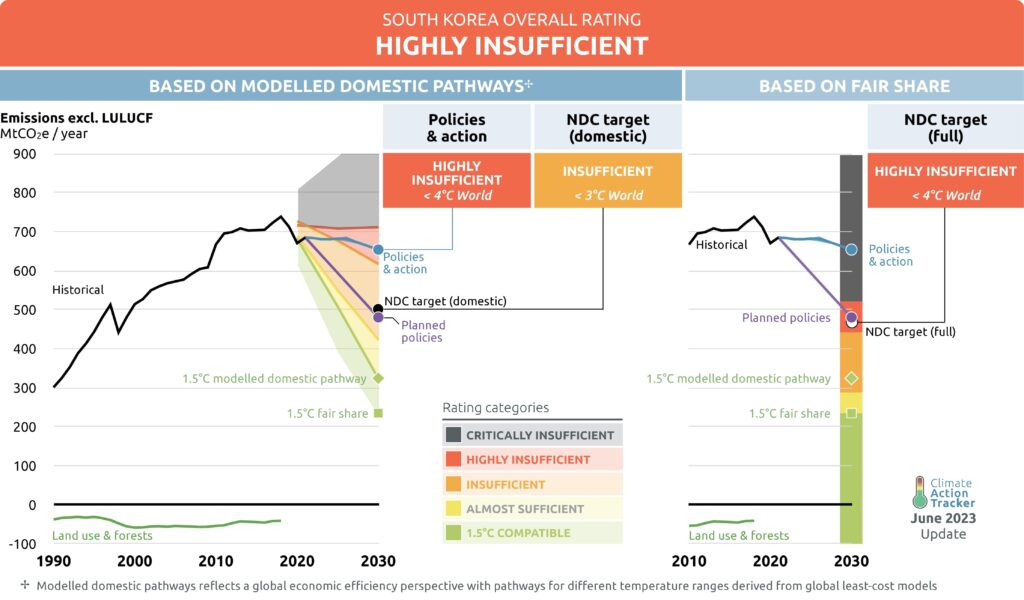
globalbizmag.com
S. Korea Unveils $315 Billion Plan to Reduce GHG Emissions by 2030
The financial regulator of South Korea – Financial Services Commission (FSC) – on Tuesday unveiled an ambitious plan to provide $315 billion in policy loans by 2030 to help reduce greenhouse gas emissions.
South Korea, which has set 2050 as deadline to achieve net zero emissions, has pledged to reduce its greenhouse gas emissions by 86 million tons (37%) from business-as-usual levels.
However, Climate Action Tracker (CAT), has rated South Korea’s target including the emissions reductions abroad as highly insufficient when compared with its fair-share contribution to climate action. South Korea should also significantly increase the domestic component of its emissions reduction target, to get on a 1.5°C Paris Agreement compatible pathway.
CAT is an independent scientific project that tracks government climate action and measures it against the globally agreed Paris Agreement aim of “holding warming well below 2°C, and pursuing efforts to limit warming to 1.5°C.
“There exist concerns that the global competitiveness of our exporters may dwindle should we fail to take appropriate steps to meet the increasing emissions-related regulations in other countries,” the FSC said.
The plan was unveiled in a meeting with the heads of five major banks – Korea Development Bank, Export-Import Bank of Korea, Industrial Bank of Korea and Korea Credit Guarantee Fund – will provide the funding to accelerate low-carbon transition for local companies by 2030.
South Korea’s Minister of Environment and Head of the Presidential Commission on Carbon Neutrality and Green Growth Han Wha-Jin was present at the meeting.

Additional Funding
In addition to the policy support, the state-run Korea Development Bank and five commercial banks – Moreover, five commercial banks — KB Kookmin, Shinhan, Hana, Woori and NongHyup — will establish a $671 million fund to be invested in the development of new green technologies, The Commission said.
“The measures announced today will mark a very meaningful first step in dealing with climate change through cooperation between the government, policy lenders and banks,” FSC Chairman Kim Joo-hyun said.
South Korea passed the Carbon Neutrality Law in August 2021, becoming the 14th nation to legislate a carbon neutrality agenda. The law, which went into effect in March 2022, requires the government to reduce GHG emissions by at least 35% from 2018 levels by 2030.















